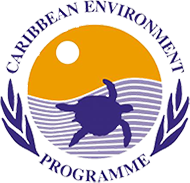
Project Overview
The ACP MEAs Programme is a joint partnership between the European Union, the Organization of African, Caribbean and Pacific States (OACPS), UN Environment Programme (UNEP) and the Food and Agriculture Organization of the United Nations (FAO). The programme aims to build capacity in 79 countries in Africa, Caribbean, and the Pacific (ACP) to support them in fulfilling their obligations as parties to Multilateral Environmental Agreements (MEAs), to address the environmental challenges they face and to reap the benefits of improved environmental governance at national and regional levels.
Since its inception in 2009, the programme is continuing support to ACP countries and is now in its third phase. Phase 1 aimed to mitigate the adverse effects of climate change, loss of biodiversity, drought, land degradation, chemicals, hazardous waste and other threats to the environment. Phase 2 built on the experiences, lessons learned, and achievements gained from the initial phase, to further enhance the capacity of the ACP countries on two clusters of MEAs (biodiversity and chemicals and waste management).
In the current and third phase (ACP MEAs 3), the programme focuses on three objectives, namely: (i) Improved enforcement of and compliance with Multilateral Environmental Agreements related to biodiversity (CBD, CITES, CMS) and chemicals and waste (Basel, Rotterdam, Stockholm and Minamata), (ii) Improved ACP countries capacities for the management of coasts and oceans in line with the related Regional Seas conventions, and (iii) Enhanced mainstreaming of biodiversity and of the sound management of chemicals and waste in agriculture in ACP countries in line with related MEAs. FAO focuses on the implementation of actions related to the third objective.
The global relevance of the ACP MEAs Programme is reflected in its alignment with the Sustainable Development Goals (SDGs), covering a wide range of targets under SDG 1 (No Poverty), SDG 2 (Zero Hunger), SDG 3 (Good Health and Well-Being), SDG 6 (Clean Water and Sanitation), SDG 12 (Responsible Consumption and Production), SDG 13 (Climate Action), SDG 14 (Life Below Water), SDG 15 (Life on Land), SDG 16 (Peace, Justice and Strong Institutions), SDG 17 (Partnerships for the Goals).
The programme partners, currently, include the African Union Commission (AUC), the Caribbean Community Secretariat (CARICOM), the Secretariat of the Pacific Regional Environment Programme (SPREP), the European Environmental Bureau (EEB), Abidjan Convention Secretariat, Nairobi Convention Secretariat, Cartagena Convention Secretariat, Noumea Convention Secretariat, Bamako Convention, BRS Convention Secretariat, Minamata Convention Secretariat, CBD Secretariat, CITES Secretariat and the Secretariat to CMS.
The Secretariat of the Cartagena Convention, along with other Regional Seas Conventions is implementing activities under objective 2 of the project, focusing on better management of coasts and oceans, and effective implementation of the related Regional Seas Conventions. The programme is expected to contribute to the achievement of SDGs 1, 2, 3, 6, 12, 13, 14, 15, 16 and 17.
The total amount of the five-year European Development Fund contribution for the UNEP Cartagena Convention Secretariat is EUR 2,000,000 under Component/ Objective 2.
The outputs and activities to be delivered by the Cartagena Convention Secretariat are as follows:

Project Objectives
- To build national and institutional capacity in African, Caribbean, and Pacific countries to achieve environmental goals through support in the implementation of multilateral environment agreements (MEAs) in the biodiversity and chemicals and waste clusters.
- To strengthen institutional frameworks in the regions through regional hubs that support countries.
- To build national capacity through endogenous national level mechanisms - To promote an integrated, cross-sectoral, and synergistic approach in the implementation of multilateral environmental agreements (MEAs).
- Enhance implementation through participatory planning, knowledge management and capacity building.
Project Documents
- MEAs Training Modules
- MEAs Ratification Status
- Capacity Building Related to Multilateral Environmental Agreements in Africa, Caribbean, and the Pacific Countries
- Action Document for Capacity Building Related to Multilateral Environmental Agreements in ACP Countries – Phase III (ACP MEAs 3)
Project Newsletters
- ACP MEAs 3 Newsletter Volume 2 Issue 6- June 2022
- ACP MEAs 3 Newsletter Volume 2 Issue 5- May 2022
- ACP MEAs 3 Newsletter Volume 2 Issue 4- April 2022
- ACP MEAs 3 Newsletter Volume 2/Issue 3 - March 2022
- ACP MEAs 3 Newsletter Volume 1/Issue 4 - December 2021
- ACP MEAs 3 Newsletter Volume 1/Issue 3 - September 2021
- ACP MEAs 3 Newsletter Volume 1/Issue 2 - June 2021
- ACP MEAs 3 Monthly Information Digest Volume 1/Issue 5 - June 2021
- ACP MEAs 3 Newsletter Volume 1/Issue 1 - March 2021
Outputs
2.1
- Cartagena Convention 35th Anniversary Video (English captions)
- Job Opening- Legal Consultant to support the Dominican Republic's implementation of the MARPOL Convention- Deadline to apply: 21 August 2022.
2.2
- SPAW Protected Areas of the Wider Caribbean
- Protected Areas Management Effectiveness (PAME) of SPAW Sites: Survey Report
- Evaluation of Connectivity Between the SPAW-Listed Protected Areas to Guide the Development of a Functional Ecological Network of Protected Areas in the Wider Caribbean
2.2 and 2.3
2.4
- (see contributed articles in newsletters)
Events






